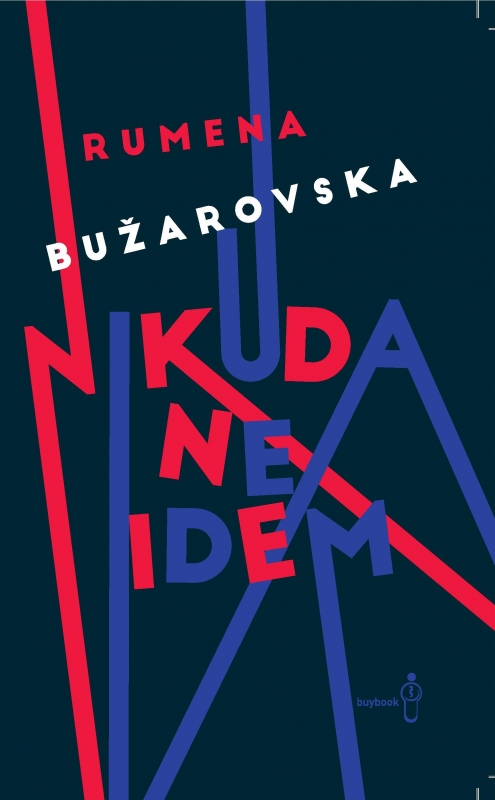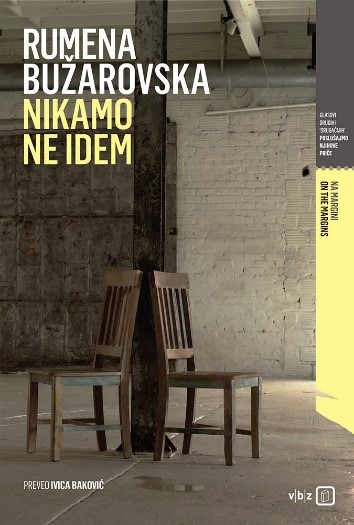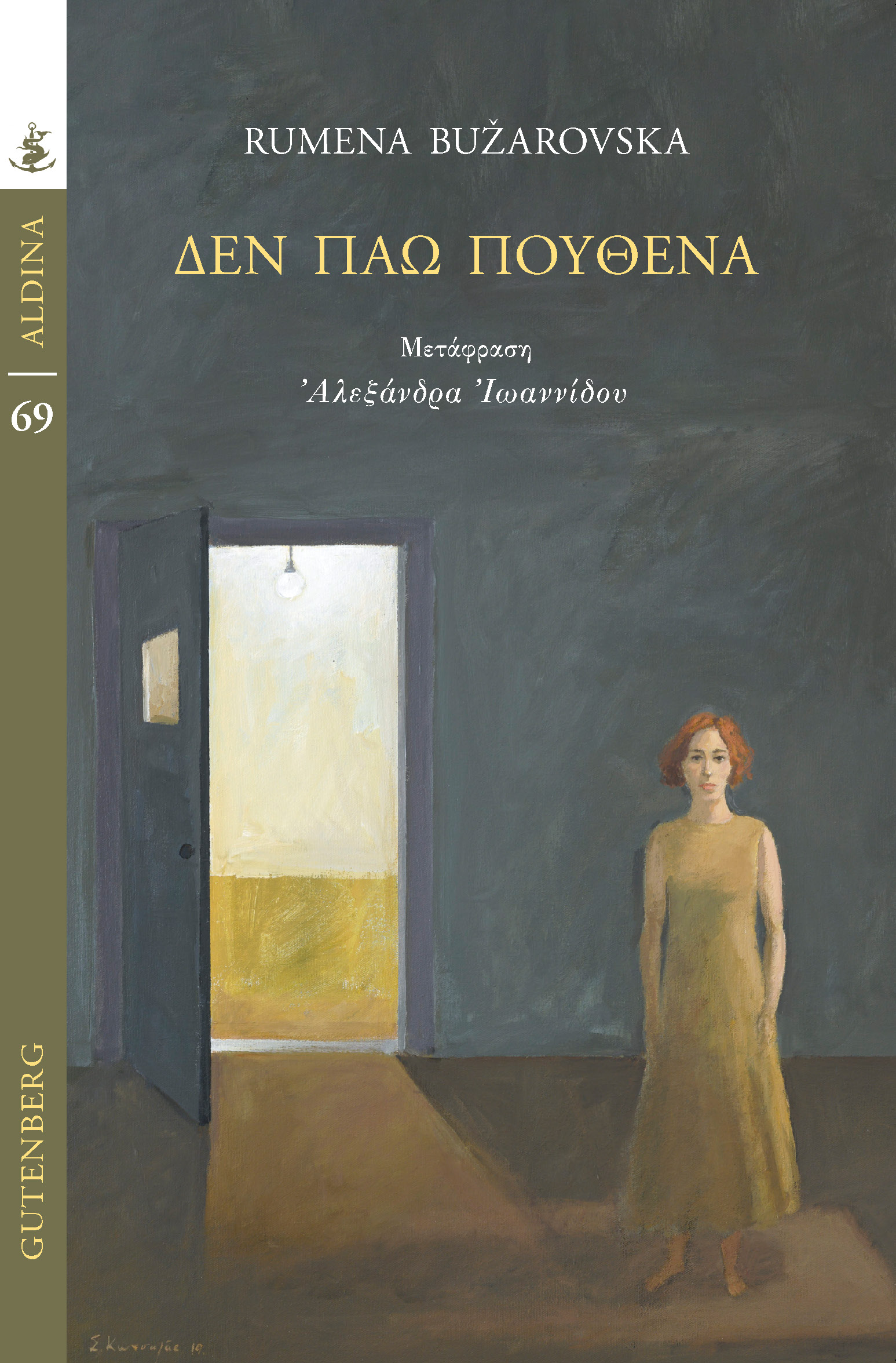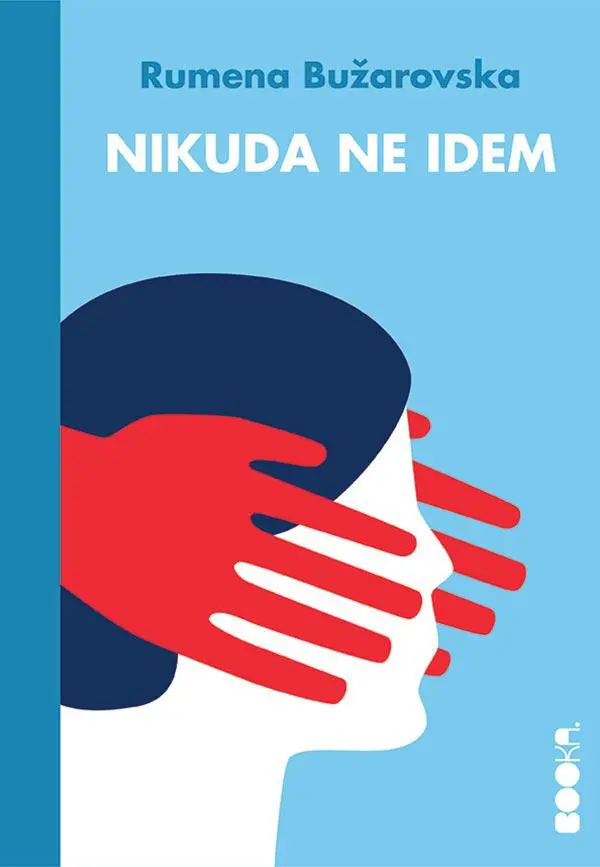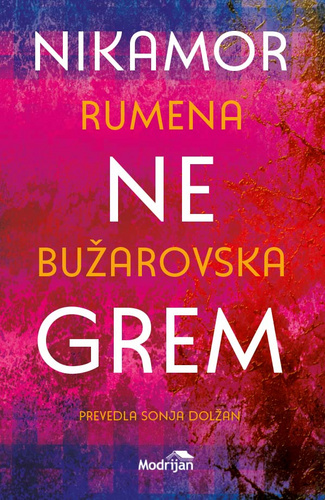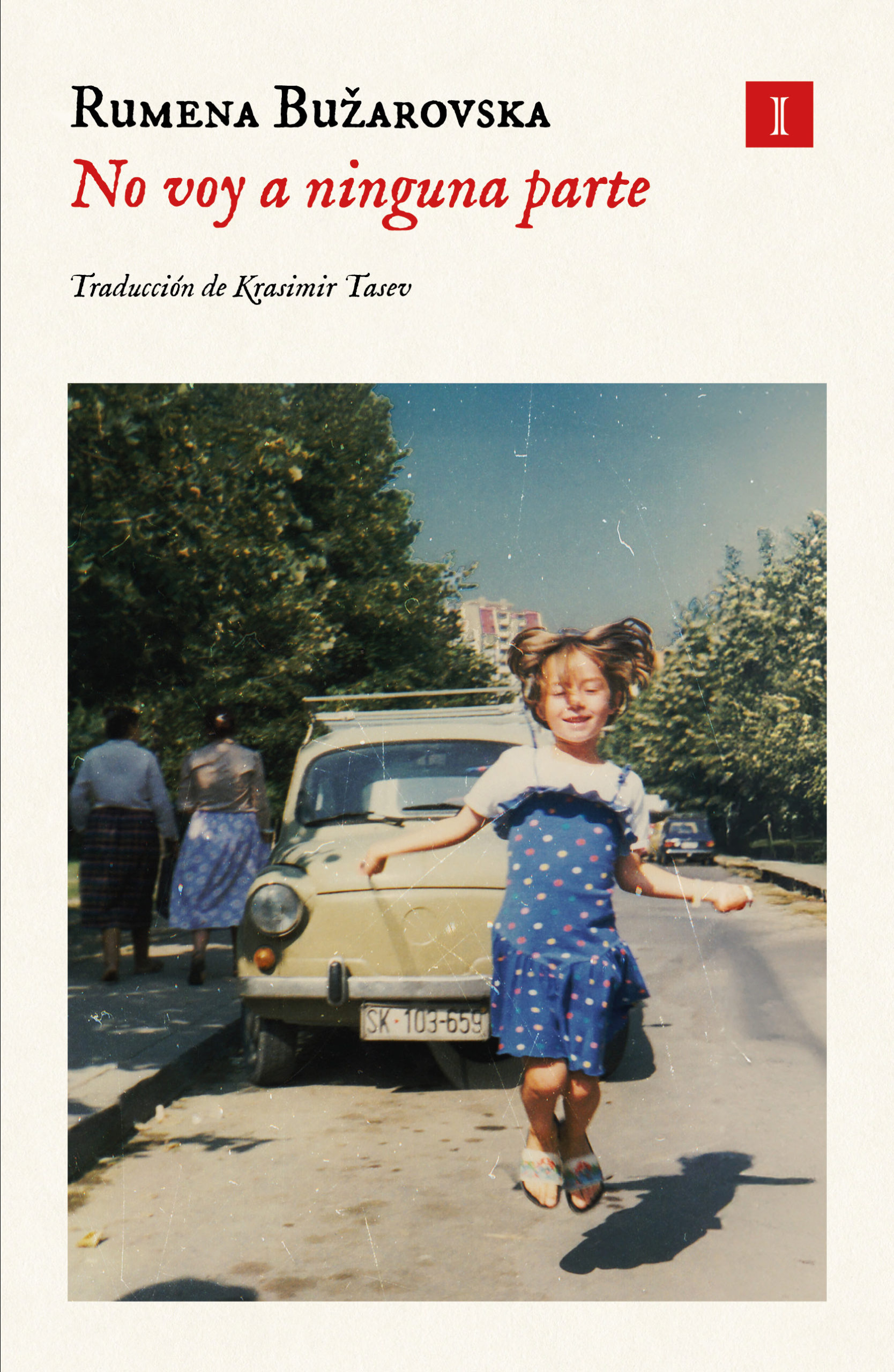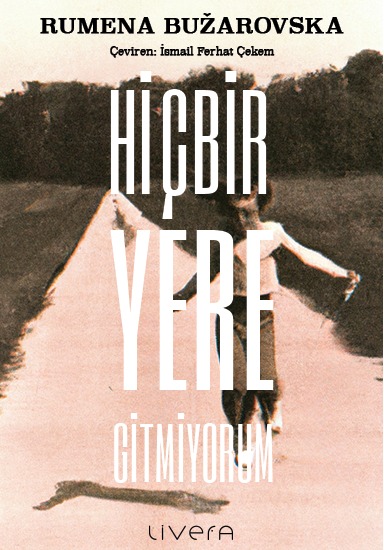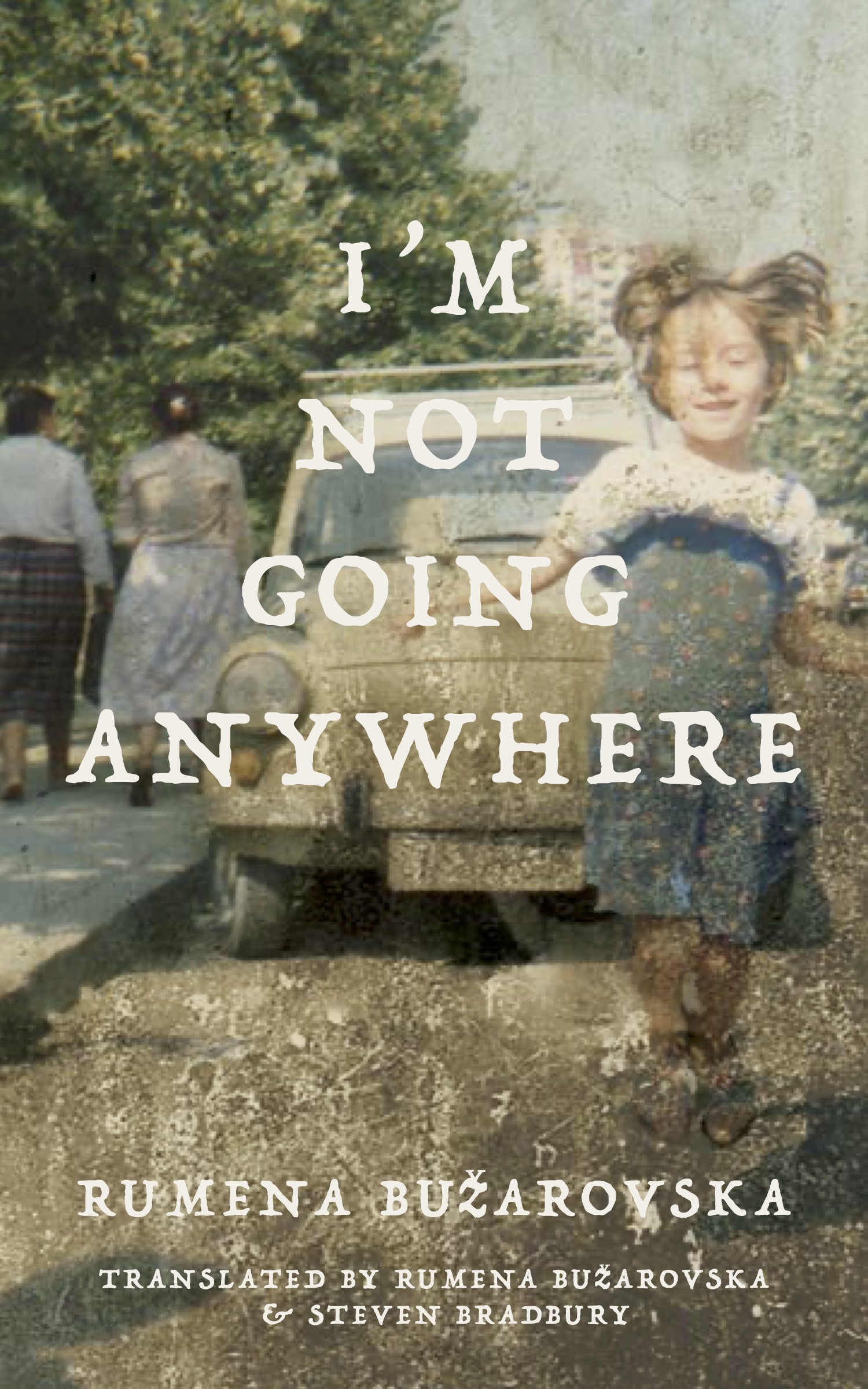
I’m Not Going Anywhere
“Expats” settled in the Balkans and Macedonians in exile cross paths in the weave of these stories, all of which revolve around moments of separation, discovery, or reunion with a place. Whether by choice or against their will, the characters in these short stories leave one land in search of another, hoping it will be more welcoming. Alas for them — but fortunately for us — that is not the case, and these displacements become the occasion for a sharp exploration, ranging from the hilarious to the tragic, of the personal and political consequences of these forced or imagined exiles.
A vase becomes the trigger for Lydia to explode in jealousy over her best friend’s life. Vesna, a university professor who tolerates her husband’s infidelities and her son’s indifference, finds herself taking part in a women’s empowerment event at the U.S. Ambassador’s residence. Ellie returns to her childhood home with the secret hope of reuniting with a former lover. No one is safe from Rumena Bužarovska’s intelligent, hyperrealistic, and incisive prose, which in this new collection of stories reveals the impossibility of finding happiness—both for those who have fled their country and for those who have stayed behind. It is an emotional atlas that dissects the lives of characters pushed to the limit, with literary mastery that makes us laugh, shudder, and reflect—all at once.
“Few writers are as unabashed and ruthless as Rumena Bužarovska and even fewer occupy that narrow sliver of deeply funny and deeply sad with her panache. I love these bitter, wild characters and how her narratives spare no one and nothing.” —Catherine Lacey, author of Pew and Nobody Is Ever Missing
“Rumena Bužarovska belongs to a new generation of women writers who have emerged from the ‘Yugosphere’—one of the most apt neologisms for Yugoslavia since its collapse. Young women writers began coming forward after the war, whose memory of ex-Yugoslavia had either been erased or co-opted by the new ‘national’ schools, or too foggy to have much to remember, except to know that such memories did, in fact, exist. Bužarovska is an exceptionally talented, modern, educated storyteller who has grown up under the influence of the American short story. Her writing is unusually legible and seductive, even when the theme is dark. Bužarovska could be Annie Ernaux’s granddaughter, spurred by internal resolve to be something, although what she wants to be is something she already successfully is.” —Dubravka Ugrešić, author of The Age of Skin and Fox
“If you haven’t read Bužarovska, you are missing out.” —Halimah Marcus, Electric Literature
“No subject is taboo for Bužarovska.” —L’Obs
